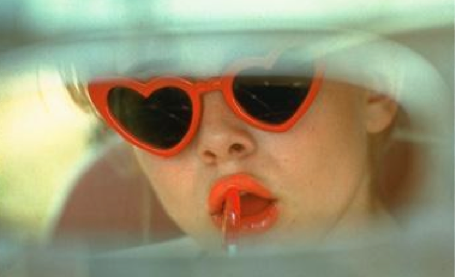Lana Del Rey, whose sophomore album, Ultraviolence, drops on June 17th, has always shown a predilection for literary references in her music. Even though one of her most signature songs, “Video Games,” would have you believe that Del Rey is just another modern illiterate, the chanteuse has plenty to offer in the way of an English lesson—particularly in somewhat superficial mentions of Vladimir Nabokov’s most culturally saturated work, Lolita.


“Carmen”: Continuing to show her nepotism for Nabokov, Del Rey culls most of the inspiration for “Carmen” straight from Lolita, including lyrics like, “It’s alarming, honestly, how charming she can be,” that compare very similarly against Lolita and Humbert singing, “Oh my Carmen, my little Carmen/Charmin’ Carmen.” Del Rey also throws in a Tennessee Williams allusion for good measure by crooning, “Relying on the kindness of strangers” in describing her version of Carmen.
“Off to the Races”: Okay, Lana, we get it. You love Nabokov. You would probably darn his socks if it meant you could co-write a song with him. “Off to the Races” features LDR at her most white girl rapper-esque as she rambles, “Light of my life, fire of my loins, be a good baby do what I want.” In Lolita, it goes, “Lolita, light of my life, fire of my loins. My sin, my soul.” Not too striking of a difference.
“Body Electric”: Taken from the title of Walt Whitman’s poem “I Sing the Body Electric,” this song is moody and often wistful—in no way a mirror of Whitman’s own style and tone. In the original poem, contained within 1855’s Leaves of Grass, Whitman wrote, “I sing the body electric/The armies of those I love engirth me and I engirth them/They will not let me off till I go with them, respond to them,/And discorrupt them, and charge them full with the charge of the soul.” Del Rey features this song in her epic music video/short film, Tropico.
http://youtu.be/xHxZzuaMtpE
“Ride”: Here, Lana shows love for Tennessee Williams (again). In the video for the song, she channels Blanche DuBois by noting that she relies on the “kindness of strangers” while riding around with older men on motorcycles and offering her services when she needs a bit of extra cash.
“Gods and Monsters”: This time, Del Rey gives a rare nod to an Irishman—Oscar Wilde. Borrowing from Wilde’s quote, “Life imitates art far more than art imitates life,” Del Rey revises, “When you talk it’s like a movie and you’re makin’ me crazy, ‘cause life imitates art.”
http://youtu.be/oD2XV_Ri800
“Brooklyn Baby”: No specific literary reference here, just the mention of “get[ting] down to beat poetry.” Presumably Kerouac or Ginsberg. Overall, the general vibe is one of a dilettante—typical of those Brooklyn denizens with vast bookshelves containing many unread books.
Listen to Ultraviolence for a chance to pick up on a new slew of literary references (this time, hopefully, some more varied ones that aren’t so Nabokov-centric).






















[…] Norton (Interlude)” is simply Del Rey showcasing her literary prowess by reciting a T.S. Eliot poem called the same. Del Rey’s propensity for regurgitating […]